Last week, I spent two days at the Euref-Campus in the Schöneberg district of Berlin, more precisely in a gasometer built in the early 1900s—an impressive 78-meter high structure and the third largest in Europe at the time. This old gasometer, which reminds visitors of Germany’s historical industrial prowess, serves as the launch venue for the Compact with Africa (CWA)—the flagship Africa program of Germany’s G-20 presidency.
The CWA leverages the G-20 platform to boost private investment in Africa, which, in turn, should help unlock the continent’s economic potential, address high unemployment, and stem mass migration. Country participation in the CWA is voluntary and comes with a commitment by the authorities to promote sound macroeconomic, business, and financing frameworks—the three pillars of the program.
Security on the Euref-Campus was tight, and for good reason. Dignitaries from Africa and around the world, including heads of states, current and former finance ministers, business leaders, officials from international organizations, and scholars were there to add their voices to this partnership conference. The mood of the event was quite positive as participants settled in, rising even higher as Chancellor Angela Merkel made her entrance to open the conference, accompanied by her guests of the day—nine heads of African states, the presidents of the World Bank and the African Development Bank, and the managing director of the International Monetary Fund.

“Friendly, but also frank”
In her opening remarks, Merkel encouraged participants of the two-day partnership conference to be “not just friendly, but also frank” in their discussions. She has a point. The economic opportunities in Africa are significant but so are the challenges, and we need honest and open discussions to identify the best solutions. Skirting tough issues will not help conquer them.
Following Merkel’s speech, each head of state from Africa gave short remarks. Particularly embodying Merkel’s call for candid discussions, President Nana Akufo-Addo of Ghana urged his fellow Africans to do more to flight illicit capital flows, a significant paradox facing Africa. While the countries are in desperate need of funding to finance their development agendas, an estimated $50 billion is lost to illicit capital flows each year. I was pleased to hear this call for action on resource mobilization: At Brookings, we have made domestic resource mobilization, including stemming illicit capital flows, an important part of our Africa research program.
After the speeches by the heads of states, a panel of finance ministers from the initial five CWA countries[1] presented economic opportunities in their respective countries, certainly to woo the many potential investors in the audience. The “by-invitation-only” bilateral meetings between investors and African officials held on the second day provided even more opportunities for them to do so. This “market-making” approach is one of the innovative features of the CWA.
Financing problems as symptoms of market failures
Each of the three pillars of the CWA—macroeconomic, business, and financing frameworks—were subjects of technical discussions on the second day of the conference, featuring experts in each area during parallel breakout sessions. I opted for the financing framework session.
During the session, I found the remarks of panelist Mohamed El-Erian, chief economic advisor at Allianz, to be particularly poignant. He noted that for every financing problem, there is a market failure. The role of policymakers, then, is to identify where that failure is and focus their efforts on fixing it. Jim Kim, president of the World Bank, had already emphasized this point during the opening session, telling a story of a Japanese fund manager who has invested $1.5 trillion in products earning negative interest rates in advanced economies, instead of in other places such as Africa where returns are much higher. Along those lines, President Akinwumi Adesina of the African Development Bank also noted with frustration that even pensions funds in Africa with $350 billion in assets are investing outside of Africa in low-yield products. “If Africans don’t invest in Africa, how can we expect others to?” he asked. The room erupted in applause.
The broader issue here is that there is market failure in the global allocation of capital. A central tenet of international finance theory and financial globalization is that capital should flow from capital-abundant advanced economies to capital-scarce ones in Africa where returns are much higher. However, global institutional investors still prefer to invest the several trillions of dollars under management in low-yield products in advanced economies. This is the type of market failure El-Erian referred to, and it justifies the emphasis of the CWA on improving business environments and on mitigation of risk. If efforts to address this market failure are successful, Africa only needs to attract 0.1 percent of these funds to help meet its investment needs, as one participant shrewdly pointed out.
Where do we go from here?
The conference ended where it began, with reports from rapporteurs from the breakout sessions, investor roundtables, and Africa opportunities forum. As it ended, I wondered: What now? Will the CWA succeed? What are the risks of failure?
While the CWA provides an opportunity for African countries, it is not a substitute for countries’ development strategies. It is rather an enabling platform to help countries achieve their development agendas and the objectives articulated in the African Union’s Agenda 2063 and the United Nations’ Post-2015 Agenda. By involving international financial organizations and convening investors, Germany has displayed pragmatism and boosted the chances of success.
By making Africa’s issues a priority of the G-20 agenda, Merkel and Germany are showing leadership on the global stage in a context where international cooperation is under assault in some corners. In addition to leveraging the G-20 platform, Germany also initiated its own “Marshall Plan” for Africa. Notably, the recognition of Germany’s leadership on the global stage led President Alassane Ouattara of Côte d’Ivoire, during his speech at the conference, to suggest that the program be renamed the “Merkel Plan.” Other heads of states, including President Macky Sall of Senegal seconded the suggestion.
Like any program, much of the responsibility lies with African policymakers and the CWA is not without risks. Importantly, as long as efforts by African countries to mobilize domestic resources fall short and saving rates remain low, it will be challenging to achieve a rate of investment that is high and sustained. I believe CWA’s perilous will likely be continuity. It will be important, over the next several years, for subsequent G-20 presidencies to not only maintain the momentum, but to continue fine-tuning the CWA based on lessons learned from implementation of early cases. There are also continuity risks on the part of African policymakers given turnover in administrations and the associated political risks. At this time, however, the case for optimism about the CWA is stronger than the case for pessimism.
[1]Côte d’Ivoire, Morocco, Rwanda, Senegal, and Tunisia are the original countries. Ghana and Ethiopia joined on the day of the conference.
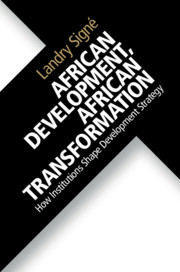
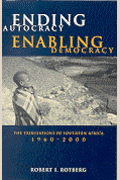

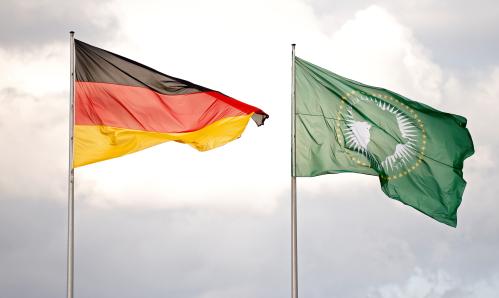

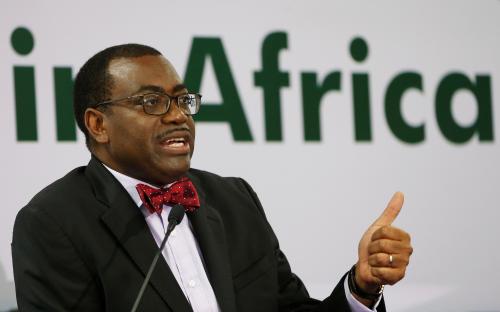
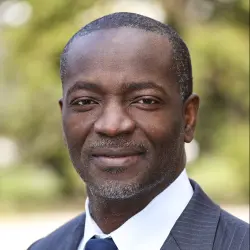



Commentary
Notes from the G-20 high-level conference on the Compact with Africa
June 20, 2017